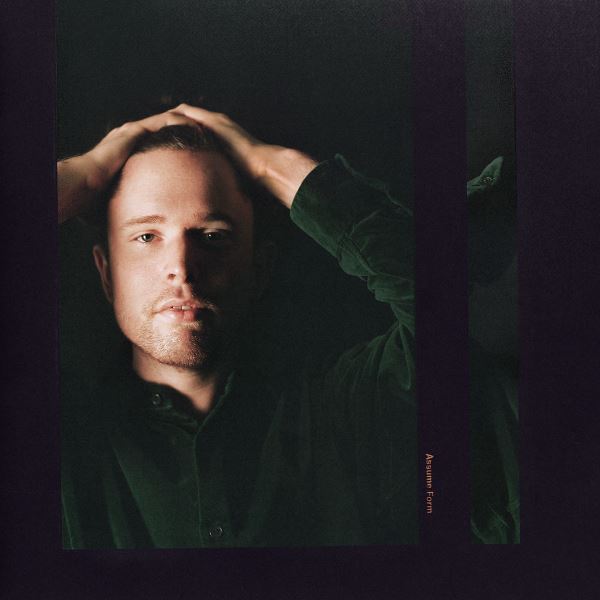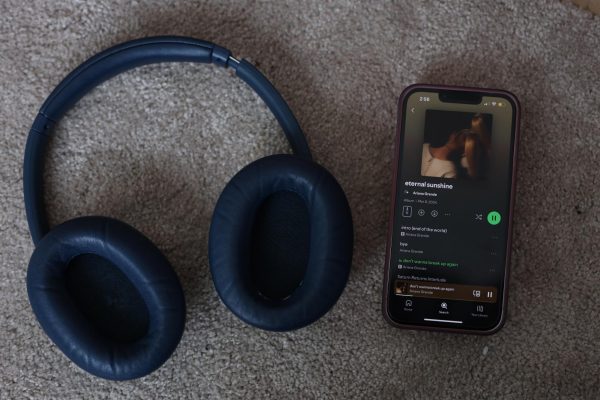James Blake Transcends On “Assume Form”

James Blake’s new album features exciting guest appearances from the likes of Travis Scott, Andre 3000, Rosalia and more. (Flickr)
By Kieran Press-Reynolds
You’re sitting in the same field you always sit in, where winter painted all the grass white. You can’t remember why you came out here. It’s been wintertime for so long that you’ve almost forgotten what the field normally looks like. As snow continues to cascade through the sky, the impermanence of the world becomes suddenly apparent. Your heart skips a beat. The ineluctable truth is that one day you will melt. Wait. In the distance, you spot an apparition. It’s a beautiful white-speckled deer. You forget about melting. There’s something about death that’s inextricable with distraction, because otherwise no one would care to live.
This image – a wintry plane trapped in self-deadness and yet still mystical – is what I picture while listening to James Blake’s new album, “Assume Form.” At times, it feels inches from the end, Blake’s willowy vocals dripping like a fountain pen on a suicide note. But there’s something supra-emo going on.
More often, Blake isn’t the center of attention, giving prevalence to the sounds he finds so alluring and distracting. Blake rejects the implied imperative in the title “Assume Form,” deciding instead that he’d rather disappear into his own soundscape.
This sonic “self-destruction” is more than just an aesthetic impulse; it’s a gender-political statement. Blake released a short polemic on Twitter earlier this year detailing his hate for the historical construction of “man.” The stigma around men expressing emotion is a major factor in what he calls a modern “epidemic of male depression and suicide.” Rather than become an ironhearted L.B. Jefferies, Blake wants to ditch the production line and unsettle expectations. As much as the guitar, with its phallic geometrics, functions as a signifier for masculinity in rock, the voice serves as the quintessence of ego and individuality that so historically has pervaded rock, rap and pop music. By positioning his voice low in the mix and often messing around with it, he subverts his own authority and more aptly conveys a sense of emotional obfuscation. It rarely sounds decadent but instead whimsical, almost like putting sadness, or more generally emotionalism, the concept he finds so problematic, on display like a perplexing museum exhibit.
Even though his vocals aren’t the premier feature like they were on his previous albums, he makes great use of them. Like Burial, a post-dubstep artist from the mid-2000s whose relatively ambient and emotionally ambiguous tracks reflect the precariousness of late-capitalist life, Blake is unhappy with society. However, while Burial’s soundscapes are full of strange, distorted vocalisations that aren’t his own and create a sort of dehumanized vacuum, Blake revels in his voice. His use of falsetto and higher pitches imagines a post-gender, post-stereotype world, where humans have left behind their bodies and become pure sound. “Mile High” is almost purely voice-as-instrument, Blake enlisting AutoTune overlord Travis Scott and beatmaster Metro Boomin to create the sonic equivalent of relaxing in a shimmering jacuzzi on a flying magic carpet. “Can’t Believe The Way We Flow” is similarly melodic, Blake’s voice harmonizing perfectly with the instrumental to sound like one long euphoric yawn.
At the same time, there’s definitely a feeling of “looking back” that pervades the album. On “Where’s The Catch,” my favorite cut, André 3000 raps about leaving “before the apparitions take over the city.” It’s an elegy for a lost Atlanta, back when his parents were still alive and his child hadn’t gone off to college. Andre’s vocals are complemented by surreal word chops and vocalisations that have been slowed down and edited so much that they sound absurd, like someone who has completely lost the ability to function.
Blake could have pushed this kind of experimentation much further. There are some tracks, like “Are You In Love?” that sound scared, where the listener can almost hear the bolder composition it could have been. Even on some of the more layered cuts like “Into The Red” and “Power On,” it feels like more could have been done with vocal modulations and psychedelic effects.
Still, “Assume Form” is a great addition to Blake’s bag of tricks. For someone who used to make dubstep and ditched it to produce misguided emo anthems, it seems like he’s finally coming into his own. The instrumentals are laden with layers of ear-pleasing textures and the vocals are used effectively and appropriately, producing a synergy that sounds both pop and ambient, emo and experimental. His music is a sonic portrait of contemporary existence, conveying the feeling that everything has become “too much,” whether it be in terms of politics, social roles or day-to-day anxieties. Like Blake, I’m sure everyone would rather dissolve into an ether of melodic bliss.
Our frenzied world of smartphones and social media often invokes the thrilling yet illusory sense that there’s something infinite out there, whether it be ever-escalating computer data processing abilities or the idea that because of the Internet, our self-documentation will last forever. But melting is inevitable. As snow continues to cascade through the sky, keep an eye out for the white-speckled deer. It might appear at any moment. Grasp those ephemeral flickers of senseless beauty and wonder that randomly occur.










































































































































































































